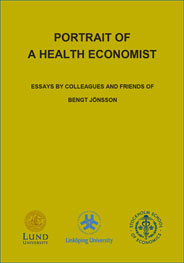Health Care Systems
Health care systems organise the finance and delivery of health care. They vary by country, reflecting specific history, culture, and economics. To maximise coverage and efficiency they must evolve with changing demographics, needs, and technologies.

Universal Health Coverage: The Holy Grail? 21st Annual Lecture Publication.
31 January 2015
The 21st OHE Annual Lecture was given by Professor Anne Mills, London School of Hygiene and Tropical Medicine, on the subject of Universal Health Coverage in…

International Comparison of Medicines Usage: Quantitative Analysis from a Swedish Perspective
1 May 2015
The OHE undertook an analysis of the uptake of medicines in 13 high income countries. The UK perspective on this was published in November 2014 by…

Incentives to follow Best Practice in Health Care
1 February 2015
There has been long-standing interest in the use of incentives to encourage delivery of high-quality health care services at the lowest feasible cost. There has been…

Universal Health Coverage: The Holy Grail?
1 January 2015
The 21st OHE Annual Lecture was given Professor Anne Mills, London School of Hygiene and Tropical Medicine, on the subject of Universal Health Coverage in low-…

OHE Lunchtime Seminar: Improving Sustainability through Needs-Based Planning
31 December 2014
The issue of health service planning regularly hits the headlines. In a speech delivered in October by the Chief Executive of NHS England, Simon Stevens described…

Towse at ISPOR: Macro HTA and Managed Entry Agreements
7 October 2014
Adrian Towse, currently President of ISPOR, contributed to two session at the recent ISPOR Asia-Pacific conference. Using HTA to maximise health system performance: Health technology assessment…

Cost Savings from Treating Obstructive Sleep Apnoea: OHE Consulting Report
26 September 2014
The British Lung Foundation commissioned OHE Consulting to undertake an analysis of the costs of obstructive sleep apnoea and the economic benefits of treating it. The…

Annual Lecture 2014: Is Universal Health Coverage the Holy Grail?
19 August 2014
Each year, the OHE sponsors a lecture that explores a timely issue in medicine or health economics. At the 22nd Annual Lecture, held in June 2014,…

Bengt Jönsson Honoured for Contribution to Health Economics
6 August 2014
Launched at a seminar in his honour May 2014, Portrait of a Health Economist: Essays by Colleagues and Friends of Bengt Jönsson is an impressive collection…